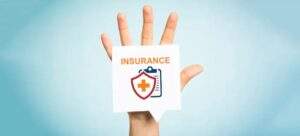5 Changes You Can Make in Your Life to Attain Good Financial Health

What does it mean to be financially healthy? Contrary to common belief, being financially healthy or having sound finances is not consonant with being rich. Everyone with low debt, a steady income, and sufficient insurance and substantial savings is in good financial health. Being financially secure allows you to fulfil your dreams. These may be like buying a house, travelling, educating your children, and looking after your family’s needs.
Like everything else, being financially beneficial results from building good financial practices and habits. Even a small change may seem difficult to begin with. But, if you stick to the new habit, it will become a part of your life. Irrespective of where you are in your financial journey, you can start making adjustments, track your spending and begin building financial health today!
We have put together five changes you can make in your life to get a good hold on your finances. Take a look –
1. Track Your Spending
One of the best ways to bring your finances back on track is to keep a tab on your spending. Record where you spend and how much. In a few days, you will be able to identify where you can cut down on unnecessary expenses. Tracking your expenses helps you save more and make a realistic monthly budget. Tracking your spending can be helpful if you want to save and pay off debts like credit cards or hospital bills. You can use a spreadsheet or a mobile app to record your spending.
2. Start Investing
Once you know how much you need to spend each month, you can make a budget that enables you to save at least a small amount every month. The next step is to find lucrative avenues to invest your savings and allow them to earn interest. Allocate your savings judiciously between debt and equity to earn enough to reach your financial goals. Define short-term and long-term financial goals and plan your investments according to these goals. You could also opt for investing in mutual funds or start a SIP for disciplined investing.
3. Build an Emergency Fund
If you are a single parent or the sole breadwinner in a family, one of the best financial decisions you can make is to start building an emergency fund. To create emergency funds, you must open a Digital savings account and deposit a small amount in it every month until you have three or four months’ worth of living expenses. Think of the emergency fund as a safety net. If you ever face contingencies or unforeseen mishaps wherein you need to spend more than your monthly budget, your emergency fund will come in handy.
4. Build a Retirement Corpus
A retirement fund is essential to good financial health. No matter what profession you are in, there will come a day in your life when you will no longer go to work. So, it would help if you had a corpus that could sustain you throughout your life. To calculate how much you will need in your retirement years, think about your living standard, the inflation rate, and the amount you can afford to invest in your retirement fund every month.
5. Know the Difference between Needs & Wants
If you wish to rein in your monthly expenditure, you must differentiate needs from wants and draw the line between necessities and luxuries. Careless spending can land you in financial trouble, so learn to recognize your needs and give them priority over your wants. Only after your needs are met should you consider spending for things you want. Be wary of using your credit card for big purchases, as you may lose track of how much you spend until you run up a sizeable credit card debt.
Simple changes in your financial habits can make a world of difference to your financial position. However, patience is crucial and giving yourself time to learn as you go. Even if you begin several good financial practices today, your financial situation will not change overnight. Set realistic financial goals, and stick to your budget to attain them. Incorporate the five simple habits described above to take the first step towards good financial health, and in a year, you’ll find that these habits are sustainable and beneficial for you.







